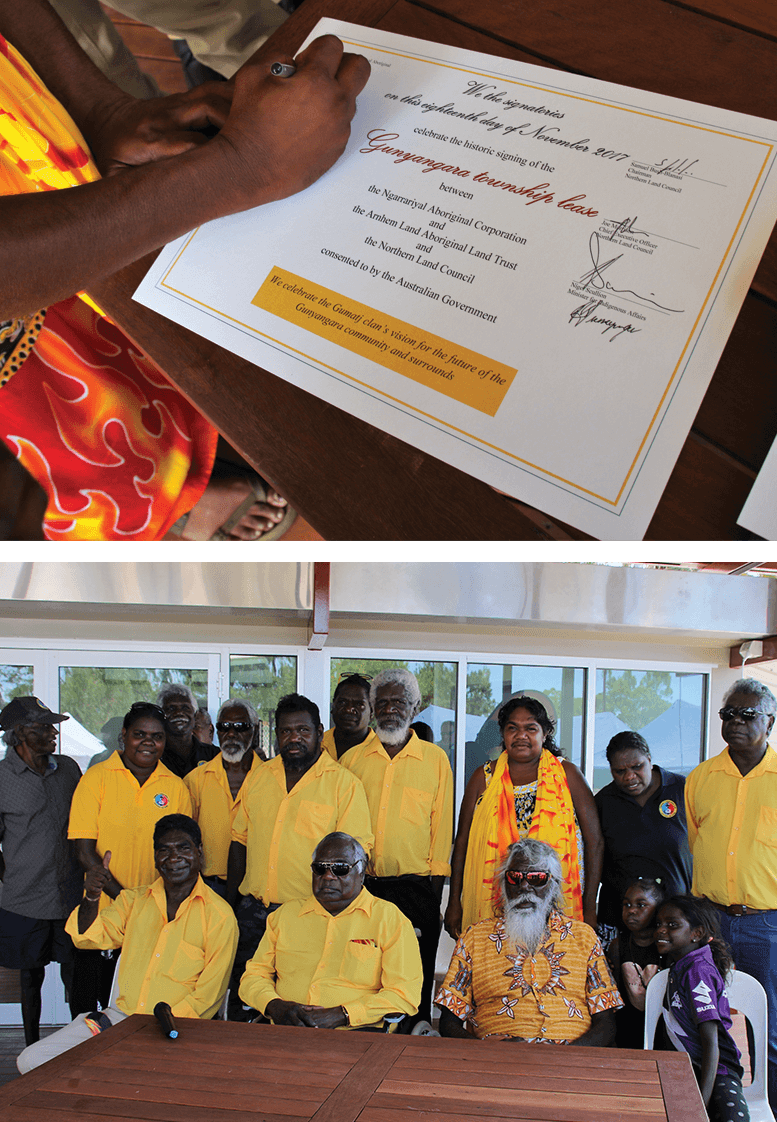Aboriginal Land &
Township Leasing
The Gunyaŋara Township Lease
Township leasing is a different mechanism of leasing provided for by section 19A of the Land Rights Act. Township leases are a long-term lease over a township on Aboriginal land. It is granted by the relevant Land Council and Aboriginal Land Trust to an entity approved under the Land Rights Act to hold township leases.
Once the township lease is in place, the approved entity is responsible for the granting of subleases, licences or other interests in land in the area covered by the township lease in accordance with its terms and conditions. This means that the Land Council no longer undertakes consultations and consent processes for land use in the township lease area – this is the responsibility of the entity holding the township lease in accordance with its lease terms and processes.
Until recently, the only approved entity under the Land Rights Act was the Executive Director of Township Leasing, an independent Commonwealth statutory office holder established under the Land Rights Act.
For ten years, the Gumatj clan, the traditional owners of the Gunyaŋara community and surrounding areas, has been pursuing a township lease for Gunyaŋara, but with a difference – the Gumatj clan wanted to hold and administer the township lease and be directly responsible for decisions on their land, and have the ability to directly engage with and partner with people and organisations seeking to utilise their land.
On 18 October 2017, Ŋarrariyal Aboriginal Corporation was approved by the federal Minister for Indigenous Affairs as a Commonwealth approved entity under the Land Rights Act, which enables it to hold a township lease. On 24 October 2017, the Gunyaŋara township lease was executed with a commencement date of 1 December 2017. The Gunyaŋara township lease is significant as it is the first township lease held by a traditional owner corporation.


Aboriginal Land and Leasing
The Gunyaŋara community, surrounds and much of East Arnhem is Aboriginal land granted under the Aboriginal Land Rights (Northern Territory) Act 1976 (Land Rights Act). Aboriginal land is inalienable and communally held, meaning it cannot be sold.
Under the Land Rights Act, there are a number of mechanisms for the leasing of Aboriginal land to enable the formalisation of land use arrangements. The main purpose of this is to provide a legal interest in land for a specific purpose to an organisation looking to utilise it – be it government, Aboriginal corporations, service providers or others.
In most communities in the Northern Territory, section 19 leases are the primary mechanism for granting interests in land. Under the Land Rights Act, any person or organisation wishing to use a specific parcel of Aboriginal land applies to the relevant Land Council. The Land Council then must consult with traditional Aboriginal owners and other Aboriginals affected, and receive the consent of traditional Aboriginal owners to the granting of a lease. In some cases, the approval of the Land Council Executive or Full Council, and the approval of the federal Minister for Indigenous Affairs may also be required.
Contact Us
If you would like to find out more, please do not hesitate to contact us.
